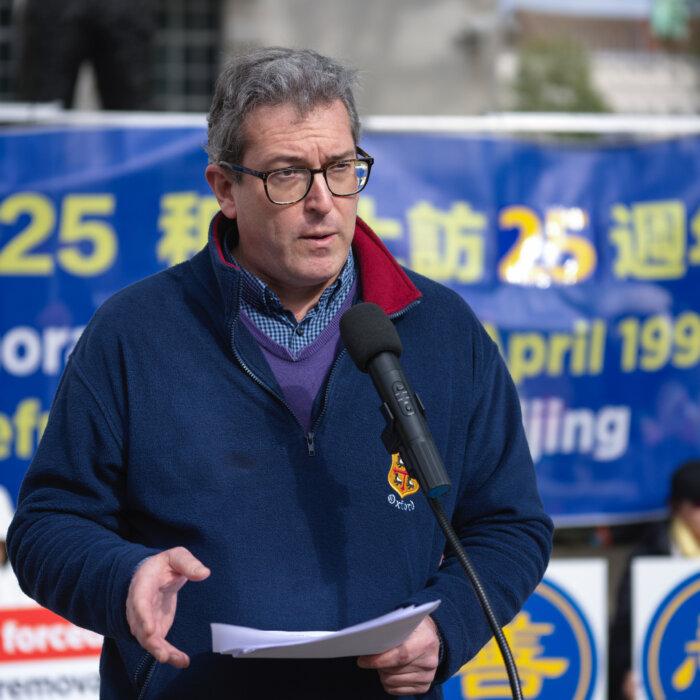The Beijing regime is “terrorising” Chinese and Hong Kong students taking part in political protests in the UK, a human rights organisation has said.
One student, referred to by Amnesty as “Rowan,” detailed how within hours of attending a commemoration of the 1989 Tiananmen Square massacre, security services in China had contacted her father, telling him to “educate his daughter who is studying overseas not to attend any events that may harm China’s reputation in the world.”
Rowan told Amnesty that she had not shared her real name with anyone at the protest and did not post online about her involvement, so was shocked to find that those connected with the regime were able to identify her in her host country and communicate her activities to officials in China.
She said that the Communist regime had made it clear to her, telling Amnesty, “You are being watched, and though we are on the other side of the planet, we can still reach you.”
According to the report, almost one-third of students interviewed said officials from the Chinese regime had harassed their families over their criticisms of the Chinese Communist Party (CCP), including threats to revoke their passports or to destroy their employment prospects. At least three students detailed how Chinese police pressured their families into financially cutting them off.
Surveilled
The report, “On My Campus, I Am Afraid,” relays testimonies from young people studying in the UK, other parts of Europe, and North America. The organisation anonymised much of the personal details of the witnesses, including their names. One of the common threads to come out of the report was that students had said they believed they were being surveilled by either Chinese authorities or their agents.One student in the UK said she had noticed people filming protest participants at several demonstrations she had attended, saying: “Every time, there is someone [we] don’t know filming. Standing to the side, using their phones and recording. They don’t say anything but stand there holding their phone.”
Another who took part in an off-campus pro-Hong Kong event in the UK in 2022 said a group of Chinese people had called the police on them.
In another instance, a student who had held up a sign in support of Hong Kong protesters was photographed the next day at Edinburgh airport “and targeted with death threats on Chinese social media platform Weibo,” the Amnesty report said.
Reported by Fellow Students
Students were not only concerned about being reported for CCP-critical activity by Beijing authorities or their agents, but from fellow peers.Amnesty said that nearly half of the students they talked to were afraid their classmates might report their comments, “either by mistake or intentionally because they were ‘nationalists’ or were compelled to do so by Chinese authorities,” the report said, noting that this led to many students isolating themselves from their peers “and has caused others to avoid association with outspoken individuals, compounding a sense of loneliness during their studies.”
Several interviewees studying in Europe said they had received “verbal threats or warnings” from fellow Chinese students, “including, in some cases, a threat to report them to Chinese police.”

In Europe, a pro-CCP student asked their university professor for the names of individuals who had raised China-related human rights issues during class, such as on the treatment of ethnic and religious minorities like the Muslim Uyghurs in the Xinjiang region. The tutor had declined.
Mr. Deshmukh said it was “obvious” the regime was trying to replicate “the climate of fear which gags people in China and Hong Kong making students terrified of how they are being perceived and suspicious of their fellow students.”
The Amnesty International UK chief executive called on British universities to “understand the dangerous realities Chinese students face from China’s transnational repression, making it clear that they’ll prioritise Chinese and Hong Kong students’ safety and freedoms.”
The Epoch Times contacted Universities UK and the Russell Group for comment.







